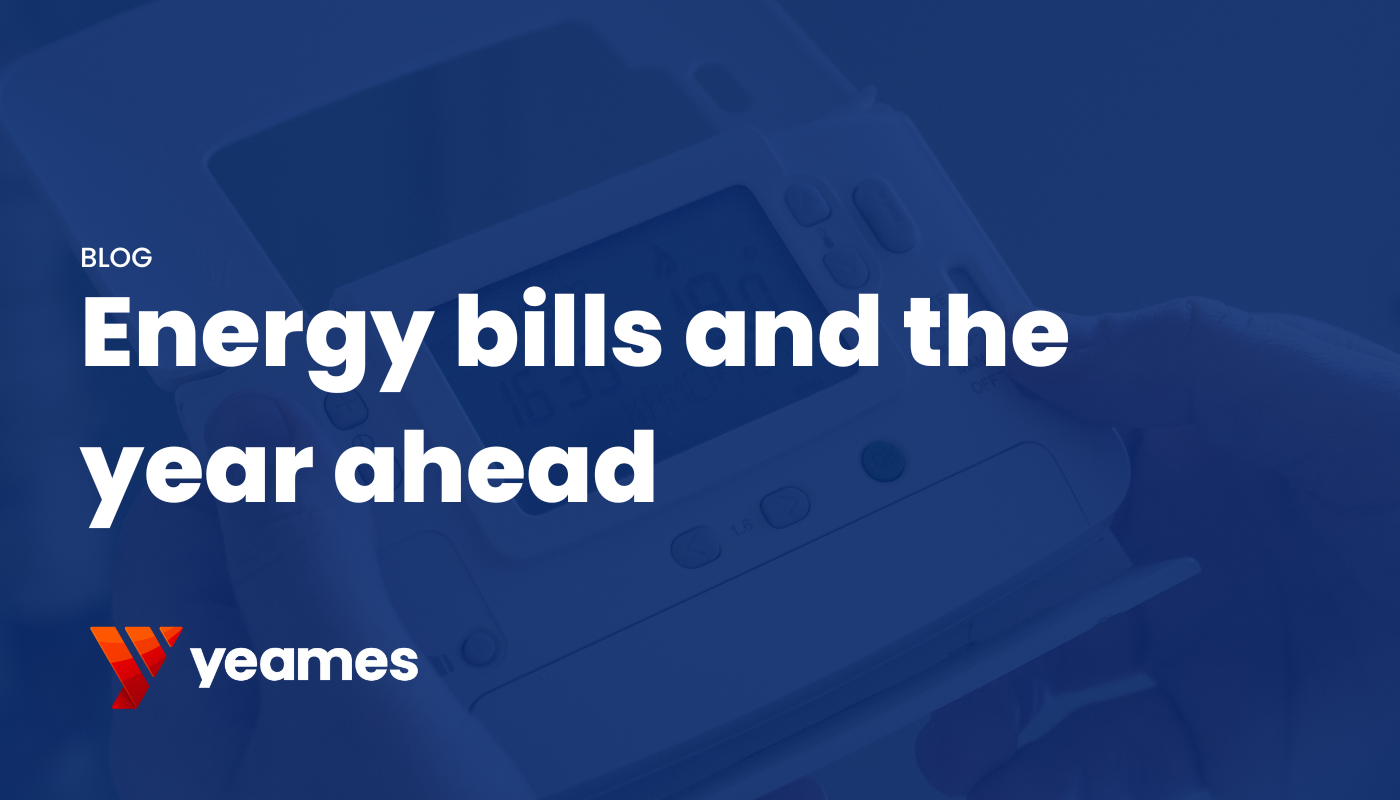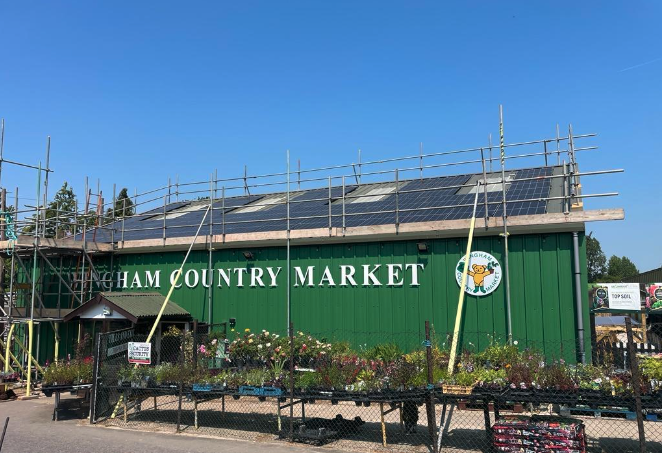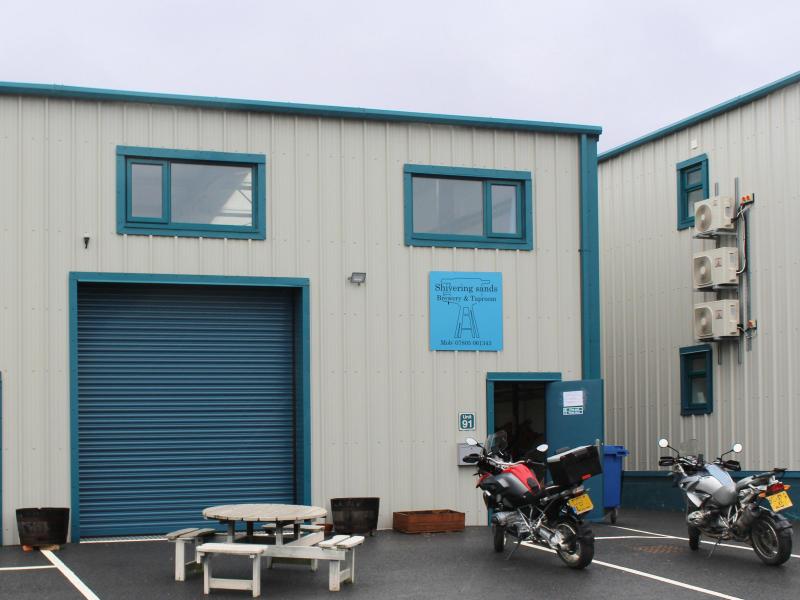Wingham Country Market's Solar Energy Solution: A Sustainable and Cost-Effective Approach
Client: Annette, Wingham Country MarketLocation: Wingham, Kent

2022 has seen much turbulence in the energy market, with potentially sky-high bills being threatened by energy companies. The government under Liz Truss attempted to help reduce bills, albeit temporarily, by instituting a price cap, which has since been kept by newly instated chancellor of the exchequer Jeremy Hunt, but will rise from April 2023.
In the wake of current uncertainty, what does 2023 mean for energy bills and what can we expect to happen for UK homes and businesses as a result?
The current cost of living crisis and rise in energy bills are due to two main factors. Firstly, a huge rise in demand for oil and gas post covid, and secondly the war in Ukraine resulting in the UK reducing its reliance on Russian oil and gas, meaning lower availability in the UK and therefore significantly higher prices.
In order for the situation to resolve, oil and gas prices will have to fall significantly, and this won’t happen unless supply becomes much more plentiful. We can therefore assume that energy prices won’t fall far enough to ease the current situation faced by the UK in the near future.
What is being done in the meantime to make energy more affordable and more accessible for homes and businesses?
Energy Price cap for homes
The current price cap, introduced by Kwasi Kwarteng during his tenure as Chancellor, originally saw home energy bills capped at £2,500 per year from October 2022.
However, with the appointment of Jeremy Hunt as Chancellor of the Exchequer came the autumn statement. Which saw the price gap raised, albeit slightly. The cap now remains as set originally until April 2023, then rises to 3,000 per year.
Thinking positively, any cap can be seen as a plus, however many families will struggle with 2,500 a year, and the cap of £3,000 will make matters worse. The price cap is currently set to end in April 2024. What will happen after that remains unclear.
Solar incentives for homes
Thanks to the Value Added Tax (Installation of Energy-Saving Materials) Order 2022, Solar panels and any other energy saving measures at the disposal of the homeowner are VAT free until 2027. This discount is applied automatically when a homeowner purchases solar or any other qualifying energy saving solution, making solar significantly more accessible for homeowners.
Solar Incentives for Businesses
There are however government incentives available for businesses wishing to investigate solar.
Locase or “Low Carbon Across the South and East” is a scheme backed by the ERDF and is a free programme for businesses in the south and east of England.
Successful applicants to LoCASE can claim for up to 40% of the cost of your materials and installation for a solar panel solution, up to a maximum value of £10,000.
To be eligible you must be headquartered in the south or east, employing 250 people or less, and have an annual turnover of 44m or less. LoCASE will also run training workshops for businesses regarding green initiatives and ways for businesses to operate sustainably.
The window to apply for a grant through LoCASE expires in March of 2023, so if you would like to apply for a LoCASE grant for your business, do so soon. For more information on eligibility criteria and how to apply, see the LoCASE website or speak to our team, who will be pleased to assist.
Also available for businesses is the corporation tax super-deduction scheme, which has been in place for some time and continues throughout 2023. Announced in the 2021 budget and in place from 1 April 2021 to 31 march 2023.
The super-deduction allows businesses to cut their corporation tax bill by up to 25p for every qualifying £1 invested, so the scheme can result in significant savings for businesses investing in solar solutions or other qualifying equipment and systems. Better still, this can be used in conjunction with your locase grant.
How can we keep on top of our energy bills?
Ensure you’re being vigilant with your energy usage. Turn off all lights and appliances that aren't being used, even those left on standby, as whilst standby doesn’t use large amounts of electricity, every little helps.
Use your smart metre to accurately track energy usage. If you have a smart meter installed already, use the provided display to track the energy you’re using and how much this costs every day. If you haven't a smart metre installed at present, contact your energy company to arrange installation and they’ll be more than happy to help.
You can use a price comparison site, such as uswitch, to ensure you’re getting the best rates from your energy supplier. Even if it's only a very slight decrease in your tariff, every saving is still a positive measure, and it all adds up.
Lastly, if you have the means to do so, investigate renewables. For most homes and businesses the most accessible way of doing this is through solar, which is going from strength to strength in the UK with many homes and businesses arranging installations. Solar prices however continue to rise due to supply and demand, which many manufacturers opting to raise prices in line with availability. Because of this, Yeames won't be increasing any prices until Jan 2023
Solar allows you to offset your energy bills by generating your own energy from the sun, and even store it in batteries for later use. Your excess energy can also be sold back to the grid, earning you a small additional income from your solution.
For more information on anything discussed above, for example grants and how to apply for them, or to speak to our team about your solar needs, get in touch today.

Client: Annette, Wingham Country MarketLocation: Wingham, Kent

Case Study: Shivering Sands Brewery's Solar Energy Solution

Case Study: Cold Harbour Police Station Solar Energy Solution